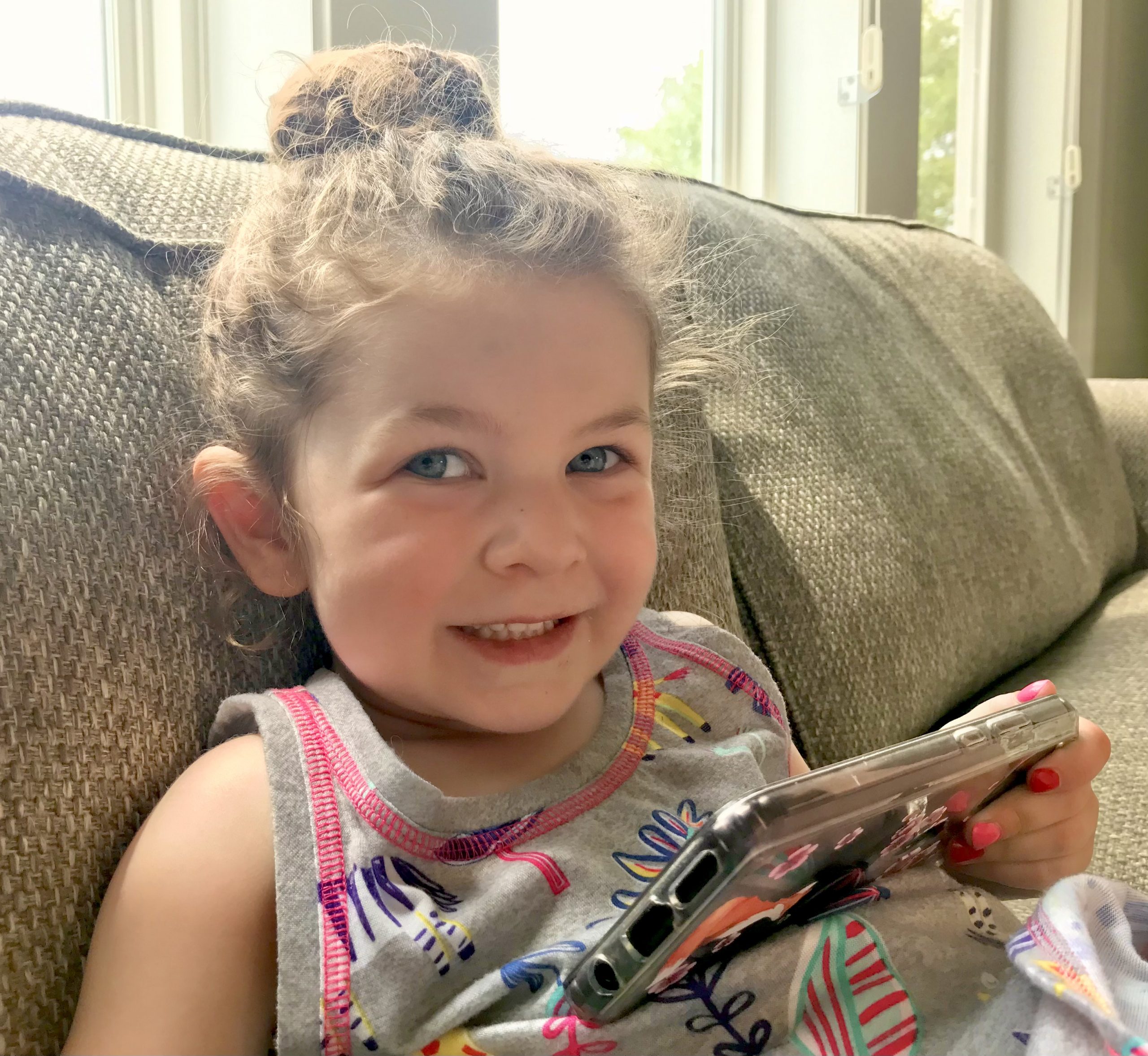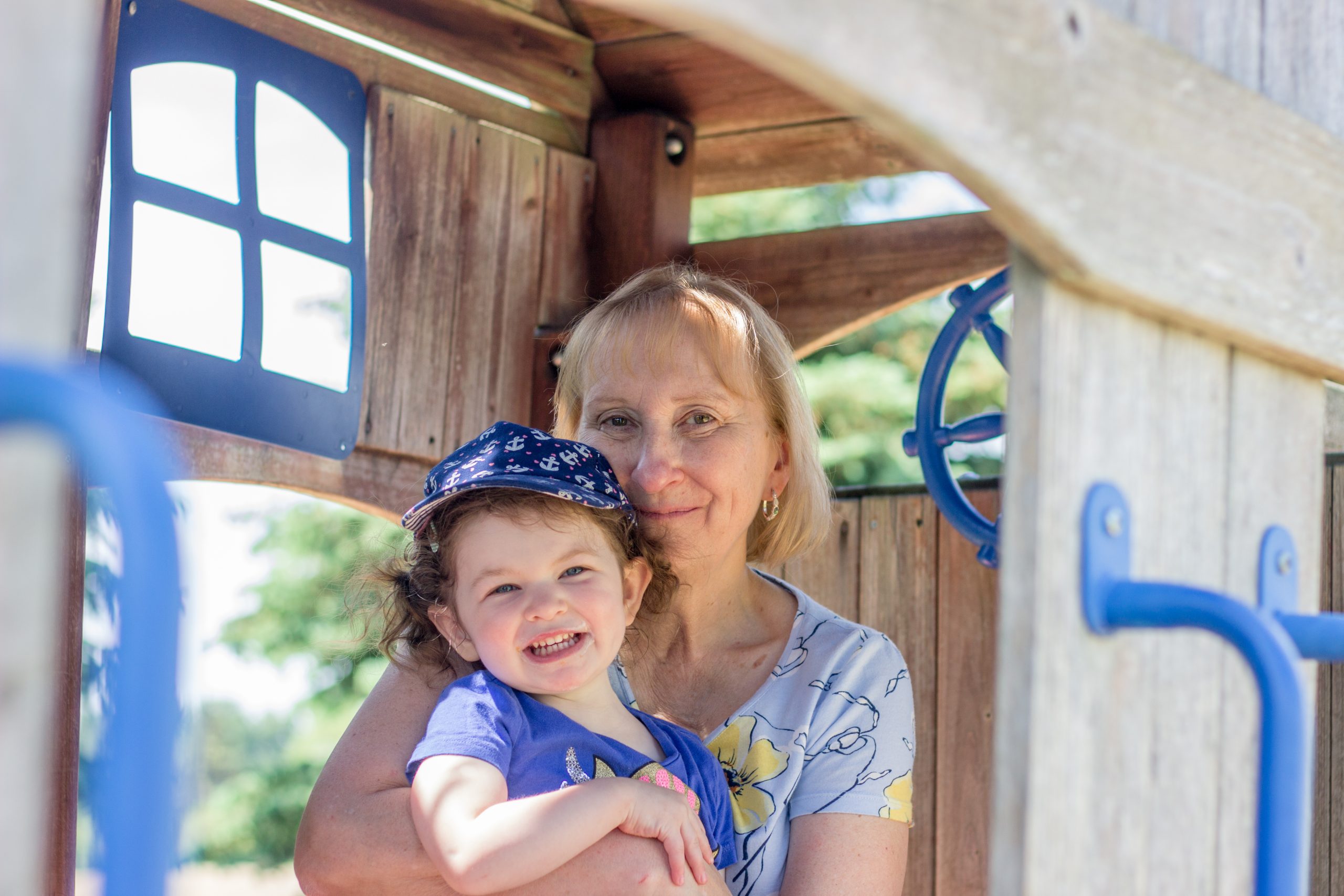Brene Brown explained a mother has two most vulnerable moments. One is when she is aware of how perfectly amazing her kids are. The other is overwhelming it can be to love them with her whole being. Often times though, the thoughts that follow are the fears, anxieties, and worst-case scenarios that come naturally with motherhood.
My instinctual reaction to anxiety and fear is control. I feel the need to come up with a solution when I think of things that can harm my daughter. Lately, I’ve been focusing on how to equip my daughter with her own tools for these moments. The first thing that always comes to mind is calling 911.
As a well-spoken three-and-a-half-year-old, I am confident she could portray worry or panic on the phone or describe on some level what’s happening around her. I worry about her memorizing how to navigate the different cell phones used by the adults who care for her. And for that matter, how to use a landline, should she be at my preciously old-fashioned mother’s house.
To help me understand the dynamics that are involved with teaching kids to utilize 911, I got in touch with Officer Bryan LeRoy with Meridian Township Police Department. Here are a few important points from our enlightening conversation:
How to Know Your Child is Ready to Call 911
You know your kiddo best. If your child is verbal, shows the ability to learn and use electronic devices, and can say their address, it may be time to teach 911 skills. If we’re being honest, most of our kids could teach us a thing or two about the features of our own cellphones – so they may be ready before you’re ready to admit it.

Understanding What Information Authorities Have Access To
By using a combination of technology and open-ended questions, 911 operators are able to locate a caller, like a child who is struggling to communicate. Logging on to the website Smart911.com and setting up a profile is another free and easy action to take to protect your family. By linking your family’s cell numbers to your home address, this site helps emergency teams find your family faster.
Practice Makes Progress
Although talking about emergencies can be scary for kids and adults alike, role-playing scenarios is highly recommended by Officer LeRoy. Practicing potentially scary situations can help make real ones less stressful on our littles. He recommends practicing in a few different ways:
- Using a thumbs-up or thumbs-down game to help kids identify which situations make sense to call 911 in and which ones don’t. For instance, a frustrating argument between siblings is a thumbs down – we wouldn’t call 911. In contrast, if a child is staying with grandma and they are unable to wake her and she isn’t speaking, this is a thumbs up example – the child should call 911.
- 911 Operator Role-Play could be the most important practice you’ll do. Have your child practice holding the phone to their ear and answering some important questions that you ask. Start by “answering” the phone as the operator and asking what the emergency is and what their address is. Other questions 911 operators may ask kids are, “What do you see outside your window?” or, “Do you see a piece of mail that may have some numbers on it?” These are meant to help the operator locate the child. Also, it’s important to remind little ones to stay on the line as long as possible. This allows for the type of locating authorities need to do in order to get to your location as quickly as possible.
- Lastly, the most basic thing we can practice is dialing 911 itself. A play phone is the best bet for practicing. However, ensuring your child knows how to manipulate the various cellphones their caretakers own is extremely important. Most phones have a feature that allows the user to make an emergency call without unlocking it. Practicing the steps to this emergency screen is extremely important, on every type of phone your child is around regularly.
Relying On Close-By, Trusted Adults
When possible, create a relationship between your child and a near-by trusted adult. This resource can make all the difference in an emergency situation. Do you have a next-door or across-the-hall neighbor that you trust? Ask them if they’d be willing to be a resource in case of an emergency. Work with your child to memorize a safe route to the neighbor’s house and practice ringing the doorbell. The combination of calling 911 and finding a competent and safe adult to help, could make all the difference.

One thing that may keep you from teaching your children 911 skills is the fear they may call at inappropriate times. I asked Officer LeRoy about this, and he was very reassuring. If your child calls 911 on accident, officers may still come out to the residence to ensure all is well. Most often they will congratulate the child for knowing how to use 911. They may also go through examples of when 911 makes sense, and when it doesn’t. Officer LeRoy also explained these situations happen more than we think and are never upsetting to the officers or operators.
Knowing there aren’t any grave consequences for making a call to 911 by accident should help you prepare your children to learn this invaluable skill. My conversation with Officer LeRoy calmed some of the anxiety I had about taking on the process in our family…I hope it has for you too!










